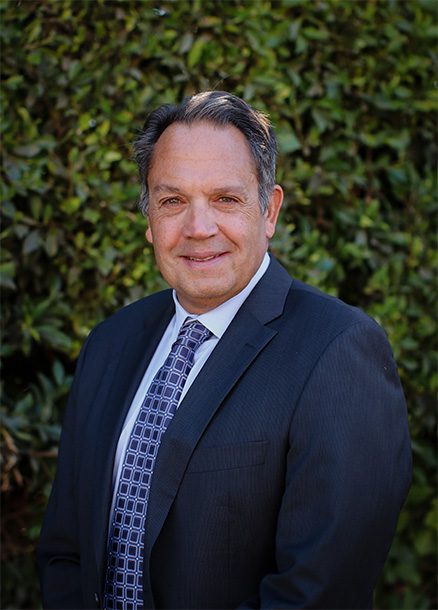Pour-Over Wills
A pour-over will is a will that is used and created in conjunction with a living trust. It is a separate legal document that satisfies all requirements to be a valid will in California. The main difference between a pour-over will and a traditional will is that the pour-over will includes a provision that allows transferring any assets under the will to the living trust.
Generally, in California, the pour-over will takes effect when beneficiaries go to the probate court and have the probate court judge use the will to direct the personal representative to transfer the assets into the trust. Then, the trustee will be responsible for transferring the assets to the beneficiaries as laid out under the trust.
If an individual is setting up a living trust, creating a pour-over will is recommended over a traditional will for ease of administration.
California Pour Over Wills Attorney | Proudly Serving Ventura County, Los Angeles County and Central California
Planning your estate can be a daunting process. While people want to avoid thinking about their own mortality, it is important to plan effectively. If you would like to add a pour-over will to your estate plan, contact Botti & Morison Christopher Botti and Paul Morison have over 90 years of combined experience practicing the areas of estate planning, probate, and trusts.
To ensure that all your assets reach the intended beneficiaries and avoid probate, secure your assets with a pour-over will. Call Botti & Morison at (877) 585-1885 to arrange a free consultation today.
We Have Estate Planning Offices Throughout Southern and Central California
Botti & Morison Estate Planning Attorneys has offices in Ventura, Westlake Village, Santa Barbara, Valencia, Bakersfield, and San Luis Obispo.
Information Center
Why Create A Pour-Over Will?
Many people wonder why they should create a pour-over will in the first place. If an individual creates a living trust, why would they need a will? Doesn’t a trust take the place of a will?
A trust can effectively transfer all of the property of an individual if the trust is funded completely and properly. This means that every asset the individual owns is titled in the name of the trust, so the trustee can transfer these assets to the intended beneficiary. But what happens if the trust does not contain all the assets, or if some assets are left out of the trust?
This is where the pour-over will comes into play. As long as the trust is still considered to be valid, the pour-over will functions to put the assets that are outside of the trust into the trust. This ensures that the assets without a plan have a place to go. The process in which these assets go through the pour-over will is still through the probate court.
It is important to note that a trust need not be fully funded until an individual’s death. Therefore, as long as the individual has the pour-over will in place and the trust is still valid, then the assets can be put into the trust after the individual passes away using the pour-over will. Again, this process still goes through probate court, and it takes longer and is more complicated than putting assets into the trust during the individual’s lifetime.
All in all, creating a pour-over will helps to ensure that an individual’s assets go where they want them to. Even if it never gets used because the trust is funded correctly, it can act like an insurance policy to ensure an individual’s assets go where they want them to. After spending the time and money to create an estate plan, some form of insurance should be used – a pour-over will – to guarantee the assets go where they are intended to.
What Happens Without A Pour-Over Will?
Under California law, if an individual dies with a valid trust in place but with no pour-over will, there may be different effects depending on the state of their financial assets. On the one hand, if all of their assets are titled in the name of the trust prior to their trust, the trust will likely function as intended, and potentially no assets will need to go through probate.
On the other hand, if an individual has a trust that is not valid or is not funded properly – meaning that only some assets are in the trust – then the pour-over will can be extremely helpful. In these cases, the personal representative will be in charge of taking the pour-over will to the probate court and having the probate judge distribute the assets to the trust or to the other named beneficiaries. In this case, if the pour-over will does not exist for the assets not titled in the trust, it will be deemed that the individual died intestate.
If an individual dies intestate, it means they died without a will in place to help guide the probate court on where they would like their assets to go. In that case, the State of California has a plan for the assets. Generally, the process is to find those individuals as closely related to the person and distribute the assets that way. For example, if the person is married and without children, most of their assets will go to their spouse. Or, if the individual dies without a spouse, but they have living children, their assets will likely go to their children.
Although probate is the process where a judge helps determine where the individual’s assets go after they pass away, in California, there are other procedures for estates that have a smaller value. For example, if the individual who created the trust only forgot to put one small checking account into the trust, the estate may qualify for a small estate proceeding which would allow the probate court to work faster and keep the fees lower while still accomplishing the same goals.
Additional Resources
Estate Planning – Wills and Trusts | State of California Attorney General
This website provided by the State of California Attorney General provides resources for how to start planning your financial estate planning. It is a good starting point to understand what to speak with your attorney about.
Wills, Estates, and Probate | California Courts
This resource provided by the California Courts provides individuals with information on how the probate process works in Calhttps://www.bottilaw.com/wp-admin/post.php?post=2226&action=edit#ifornia.
Pour-Over Will Lawyers | Estate Planning Services in Ventura County, Los Angeles County and Central California
Without a pour-over will, some of your assets may be subject to probate process, which can unfortunately complicate the process of your intended beneficiaries receiving their inheritance. If you would like to speak to a qualified estate planning lawyer about adding a pour-over will as part of your comprehensive estate plan, reach out to Botti & Morison Christopher Botti and Paul Morison are knowledgeable attorneys with decades of experience in estate planning.
Our lawyers have over 90 years of experience helping individuals and families set up tailored estate plans and can do the same for you. Call today at (877) 585-1885 to set up your first consultation free of charge. Botti & Morison accepts clients throughout California and has offices in Ventura County, San Luis Obispo County, Los Angeles County, Kern County, and Santa Barbara County.
Pour-Over Wills in California
Our estate planning lawyers have decades of experience helping individuals and families set up tailored wills and estate plans. Call today at (877) 585-1885 to set up your first consultation free of charge.
Botti & Morison accepts clients throughout California and has offices in Ventura County, San Luis Obispo County, Los Angeles County, Kern County, and Santa Barbara County.






